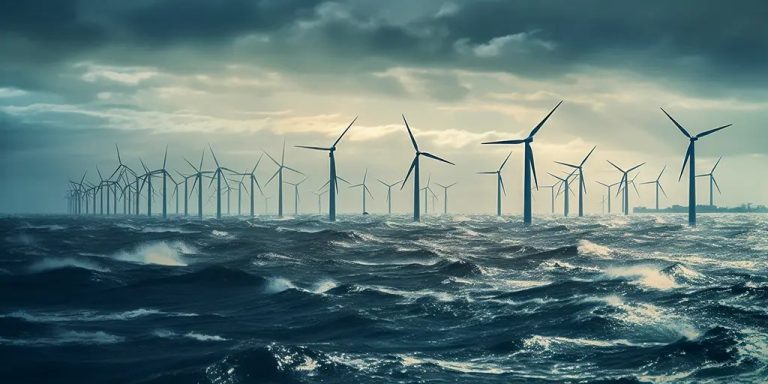from masterresource
Robert Bradley Jr.
“In areas where wind farms are being developed, invasive species may harm…industry by reducing fish populations, destroying habitats, and discouraging tourists seeking intact and diverse marine environments.” – Kieran Kelly, Ocean Integrity (Part 2)
“Being green is hard, especially when ‘green’ means fighting carbon dioxide (CO2) in a one-dimensional way at the expense of almost every other metric. Consider wind power, land The problems therein (past failures, government dependence, intermittency, site depletion, localized warming, noise, bird mortality, health impacts) are only amplified offshore (cost premiums, wake effects, blade failures, industrialization, hurricanes , piling, political bribery).
Kieran Kelly, CEO of Ocean Integrity, “a global organization dedicated to reducing ocean plastic pollution and creating positive social impact,” recently took to social media to report on a specific ecology Problem: Invasive filter feeders.
The growth of invasive filter feeders in wind farm construction areas provides a compelling argument against the construction of offshore wind farms. [Ed. Note: see picture below]
Invasive filter feeders can disrupt the delicate balance of the ecosystems they depend on. These organisms often outcompete native species for resources, causing biodiversity decline and changing the natural composition of communities. The introduction of invasive filter feeders can lead to the displacement or extinction of native species, disrupting complex networks of interactions that evolve over time.
The spread of invasive filter feeders can have profound effects on the food chain within affected ecosystems. By consuming large amounts of plankton and other small organisms, they can deplete the food sources that native species rely on. This can lead to population declines and knock-on effects across the food web, affecting the abundance and distribution of other species, including commercially important fish stocks.
Invasive filter feeders often modify their surroundings to suit their own needs, which can adversely affect native habitats. They may alter water flow patterns, disturb sediment layers, or create physical structures that disrupt the natural habitats of other species. These changes can lead to the loss of critical habitats, such as seagrass beds or coral reefs, which provide shelter, breeding grounds and nursery areas for many marine species.
The negative impacts of invasive filter feeders extend beyond ecological consequences. In areas where wind farms are being developed, there are often economic benefits associated with fishing, tourism and recreational activities. The spread of invasive species can harm these industries by reducing fish populations, destroying habitats, and discouraging visitors from seeking intact and diverse marine environments. The economic damage from these impacts can be substantial and long-lasting.
Once invasive filter feeders become established in an area, eradicating or controlling them becomes challenging, time-consuming, and costly. Prevention should be the primary focus to avoid the introduction of these species in the first place. Prior to the construction of offshore wind farms, potential risks associated with the growth of invasive filter feeders should be thoroughly assessed through comprehensive risk assessments and environmental impact studies.
It is critical to assess the potential for establishment and spread of invasive filter feeders in areas where wind farms are proposed. Adequate safeguards and rigorous monitoring programs should be implemented to prevent the introduction and spread of these species.
He added in his comments:
Denmark surrounding waters 
Ørsted has announced a $4 million plan to support environmental research at the University of Connecticut, raising concerns that offshore wind companies are effectively suppressing academic institutions.
Later today, I will share new evidence of contamination from these offshore structures. We are preparing to file lawsuits against these companies and our attorneys believe we have strong grounds to shut them down. As an environmentalist, my only concern is protecting our oceans – let’s be clear about that.
Final comments
A much-needed civil war within the mainstream environmental movement (Big Green, Inc.) has been corrupted by “green money”. Big wind, big solar and big batteries control the narrative that in the war against carbon dioxide (CO2), fossil fuels and modern industrial life, no ecological trade-off is too big.
However, the green divide is expected to grow as surface area, living space, is increasingly taken over by politically correct, economically incorrect energy sources.
——————
Pictured: filter feeder

Relevant
